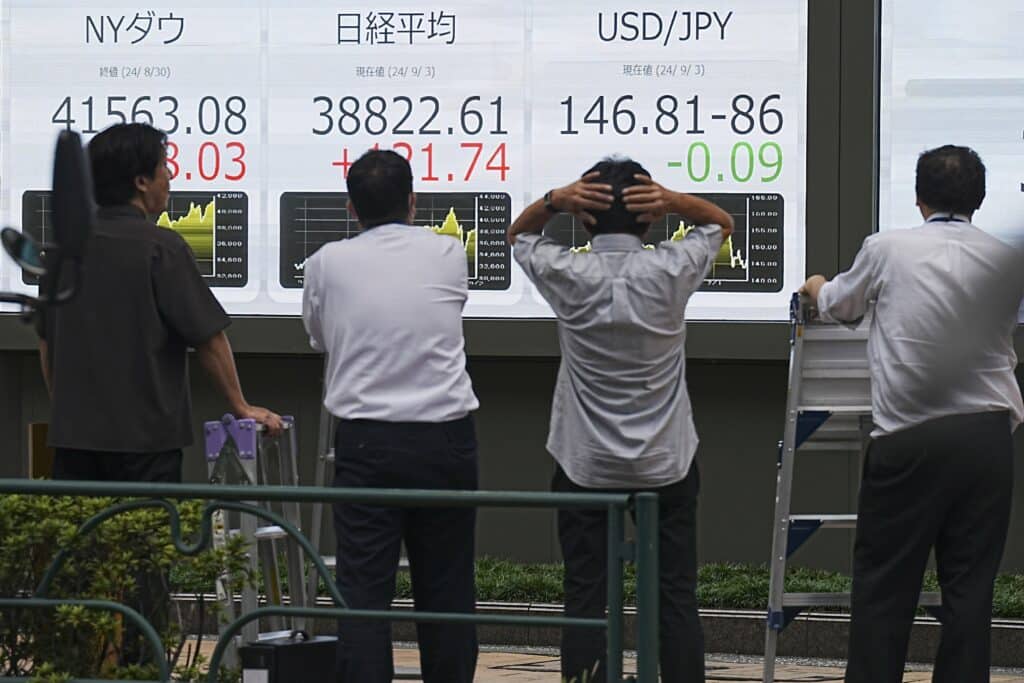Asian markets trading mixed as investors wait for key US jobs report

People look at an electronic stock board showing Japan’s Nikkei index at a securities firm Tuesday, Sept. 3, 2024, in Tokyo. (AP Photo/Eugene Hoshiko)
TOKYO — Asian shares traded mixed Tuesday as investors looked ahead to a key report on U.S. employment set for release later in the week.
Japan’s benchmark Nikkei 225 rose 0.2% in morning trading to 38,787.80, while Australia’s S&P/ASX 200 fell less than 0.1% to 8,102.70.
The closely watched U.S. jobs data is expected to influence the Federal Reserve’s read on the American economy and when it will start lowering interest rates. The move will have repercussions through global markets, including Asia.
READ: Stock markets wobble on China woes
“It is shaping up to be a significant litmus test. A stronger-than-expected payroll number, paired with a lower unemployment rate, could inject some much-needed confidence into the market, signaling that growth risks might be easing, at least for now,” said Stephen Innes, analyst at SPI Asset Management.
“If the report disappoints, especially if it pushes the unemployment rate higher, we could quickly see growth concerns flare up again.”
A wait-and-see mood was earlier prevalent, as Monday was Labor Day, a national holiday in the U.S.
South Korea’s Kospi added 0.2% to 2,687.14 after a report showed consumer inflation slowed in August to the weakest in more than three years, supporting expectations of an easing of monetary policy.
That move could come as soon as next month, according to analysts.
South Korea’s consumer price index, or CPI, rose 0.4% from the previous month and 2.0% from a year earlier, after gaining 0.3 from a month earlier and 2.6% on-year in July.
Hong Kong’s Hang Seng added nearly 0.1% to 17,706.67, while the Shanghai Composite edged down 0.2% to 2,805.74.
READ: Slower inflation gives PSEi room to rise
Worries were also growing about the resilience of China’s economy, as recently disclosed data showed a mixed picture. Recent weak earnings reports from Chinese companies, including New World Development Co., a property developer and investor, added to the pessimism.
In energy trading, benchmark U.S. crude rose 53 cents to $74.08 a barrel. Brent crude, the international standard, lost 11 cents to $77.41 a barrel.
In currency trading, the U.S. dollar edged down to 146.70 Japanese yen from 146.89 yen. The euro cost $1.1066, down from $1.1074.